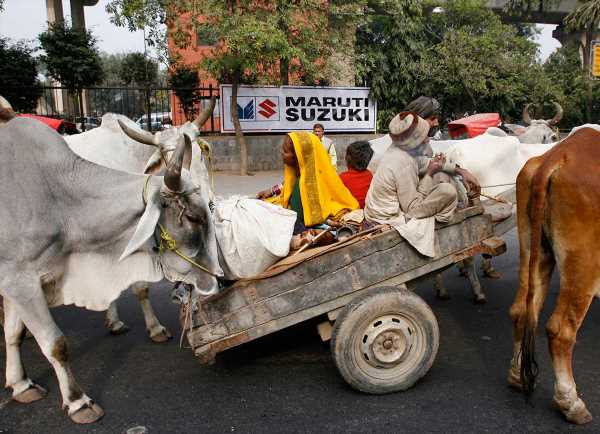Maruti Sold 584,126 Cars In Rural Markets
Maruti Suzuki says it has sold at least one car in 418,000 villages.
Maruti Suzuki’s bet on the rural markets is showing results: The share of rural sales is moving fast towards the halfway mark.
The country’s largest car maker has sold 584,126 cars in the rural markets from April to January this fiscal of the overall sales of 1.3 million vehicles in this period, registering a growth of 24 per cent from the same period the previous year.
Rural sales account for 44.2 per cent of the overall numbers this financial year till now against 38.5 per cent in the pre-Covid-19 period of FY20.
The rural market’s share has risen consistently over the years.
From 38.5 per cent in FY20, it rose to 40.9 per cent in FY21 and 43.6 per cent in FY22. Hence, the share of urban sales has declined over the years.
Four good consecutive monsoons along with a higher yield and price have put more money into farmers’ hands.
“The last few years have seen good monsoons. Rabi sowing this year is up almost 3 per cent, while kharif sowing was up 7-8 per cent with a good output. Government spending on rural infrastructure has led to increased demand for personal mobility,” said Shashank Srivastava, senior executive officer (marketing and sales), Maruti.
Rural retail sales growth this year, he aded, was 24 per cent, while urban growth was 20 per cent so far, resulting in an overall retail sales growth of 22 per cent.
Even during the pandemic, the rural growth rate has been positive.
Maruti Suzuki was so confident of the market that it recruited rural dealer sales executives and rural relationship managers and this faith paid off when urban sales growth dipped during COVID-19 into negative territory.
The former are basically local people with knowledge of the language, culture and territory.
These executives are handpicked for being well known in their communities and for having a good relationship with people.
They help the company to conduct local promotional activities and test drives for rural customers.
The company has around 16,500 rural dealer sales Executives.
Maruti Suzuki says proudly that they have helped to sell at least one car in 418,000 villages.
As to urban sales growth, it was minus 4 per cent in FY21 and minus 9 per cent in FY22.
In the pre-pandemic year of FY20, the car maker saw an overall sales growth drop but rural sales still fared better than urban. (see chart).
‘We continue to maintain a positive view given the Maruti Suzuki unique moats and intrinsic strength like a broad-based product portfolio, dealership strength and a strong rural presence,’ said Dolat Analysis and Research Themes in a January report.
Srivastava points out that, in the last 15 year’s data, rural growth has always been higher than urban, with the exception of 2013.
To add to this, car penetration in rural areas is very low and therefore, the growth is also better due to a base effect.
The rate of income growth in rural areas is better due to increased agricultural output.
At times, there is some crossover between rural and urban sales.
For example, a rich farmer living in an urban area may book his car through a rural dealer sales executive because he has an address in a rural area and farms there.
Looking ahead, as Maruti Suzuki’s focus on SUVs and EVs increases, the pattern of rural growth overtaking urban may change.
This year may have shown a glimpse of this already.
Srivastava says during this fiscal, there have been some months when urban sales growth has beaten rural sales growth.
In September, Maruti Suzuki launched the Grand Vitara and followed this up with the Jimny and the Fronx in January. it is eyeing the top spot in the SUV segment by the end of 2023-2024 with a 33 per cent share of the pie.
Feature Presentation: Ashish Narsale/Rediff.com
Source: Read Full Article



